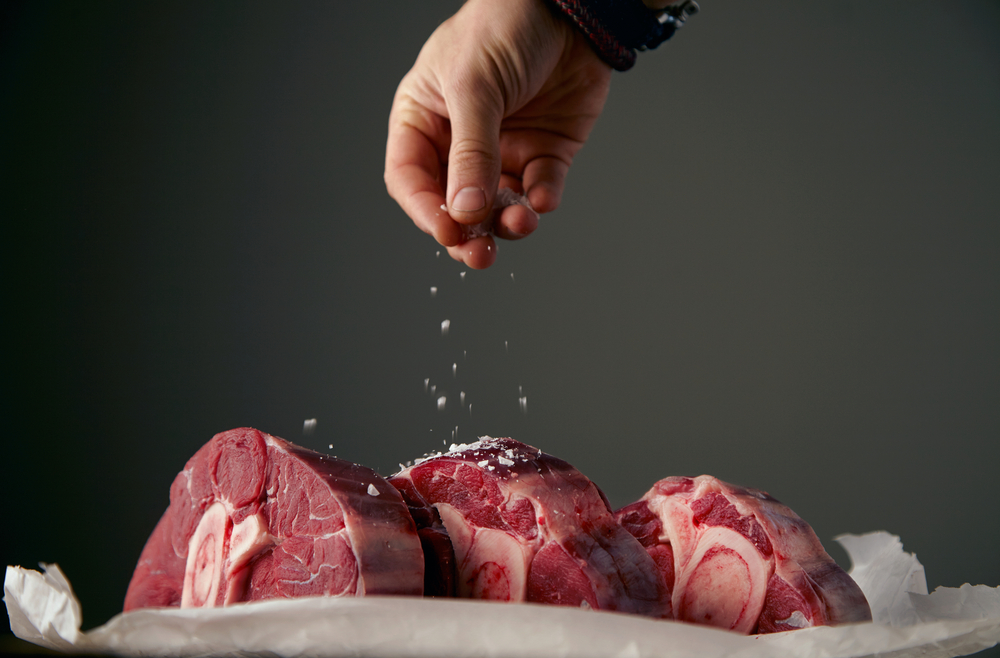Special conference hosted in Brussels invites European Jews and Muslims to push back against regional bans on kosher and halal slaughter bans. But some say the event was ‘too little, too late.’
By World Israel News Staff
The European Union hosted a first-of-its kind event last week, aimed at encouraging European Jews and Muslims to challenge local and regional restrictions on traditional forms of slaughter.
The event took place in Brussels last Thursday, hosted by the European Commission, the executive branch of the EU.
Katharina von Schnurbein, the EU’s coordinator for combating antisemitism, convened the conference, inviting both Muslims and Jews to discuss traditional religious meat production as well as efforts by local, regional, and national lawmakers in EU member states to restrict or ban traditional slaughter.
Chief Rabbi Pinchas Goldschmidt, president of the Conference of European Rabbis, lauded the conference as a “worthy endeavor,” while lamenting the rise of legislation banning traditional slaughter.
“Shechita stands precariously threatened by hostile governments. In Belgium and Finland, for example, Animal Welfare Bills have brashly banned or are on course of outlawing their Jewish communities’ ability to produce their own meat, hindering Jewish life in those countries, and disregarding Jewish religious rights,” Goldschmidt said.
“To be able to live and thrive as Jews in Europe, these rights must be safeguarded in law. Such will be our message to this commendable conference,” he added.
Rabbi Menachem Margolin, chairman of the European Jewish Association, told the Jewish Telegraphic Agency that the conference was “designed to give us a platform, rather than to just have us come and state our case alongside people with the opposite view.”
Nevertheless, in a statement following the event, Margolin lamented that the conference was “too little too late.”
“We thank the Commission for agreeing to our repeated pleas and finally addressing the issue of Freedom of Religion in Europe, in this case on religious slaughter. It is a much-needed step in the right direction,” he said.
“However, today’s conference must not give anyone the feeling that the issue can be marked with a tick or glossed over with well-meaning words.
“We expect, going forwards, that the European Commission will make every effort to secure the support of all European governments for legislation that would enshrine the issue of religious freedom in law to ensure the continued existence of Jewish life in Europe.”
This past summer, Brussels – which last week hosted the event backing religious freedom – nearly banned shechitah and zebiha, the traditional Jewish and Muslim forms of slaughter. The regional parliament narrowly voted down a proposed ban on kosher and halal slaughter, voting 42 to 38 against the bill.
Animal rights proponents have argued that animals should be stunned and rendered unconscious with an electric shock applied to the head before slaughtering, a practice which would render the meat unkosher and non-halal.
Jewish and Muslim groups have been fighting against such proposals for years in Belgium, losing in the southern Walloon Region in 2017 and northern Flanders Region in 2019.
In December 2020, the European Union’s highest court confirmed these regions’ right to ban the ritual practice, going so far as to state that leaders of the Jewish and Muslim communities should find a way for their followers to practice their faith in direct contradiction to their beliefs.
While The Netherlands banned kosher and halal slaughter in 2011, only to reverse the ban, a number of EU member states, including Sweden, Denmark, Finland, Slovenia, and Estonia, still prohibit kosher and halal slaughter.


